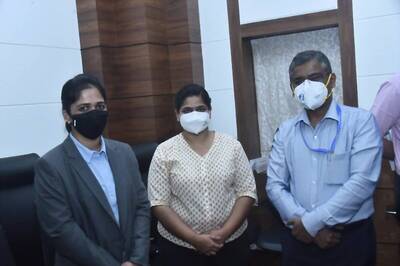
views
We waited two and a half years for this judgement. We watched from the sidelines, being able to offer only words to boost morale and silent prayers as Priya Ramani took on a legal team that had listed 97 lawyers, while she trudged back and forth between Bengaluru and New Delhi. Priya’s acquittal in the criminal defamation case was cathartic. This landmark judgement is not just a vindication of all those survivors who spoke of sexual harassment at the workplace but indeed a protection against future baseless cases filed to silence and intimidate survivors. As we salute Priya’s courage and eminent lawyer Rebecca John’s tenacity, it’s also time to take cognisance that the battle to ensure safe working environments for women has only just begun.
Sexual harassment at the workplace is finally out in the open: no more whispering in hushed circles, no more blaming the survivors or questioning their intent even if they speak years after the abuse. But to ensure safe working conditions, the onus will remain on a company and its management. It’s pertinent to also remember that when a sexual predator preys on victims over years, he has several enablers too. A company management that refuses to recognise the inappropriate behaviour of office superiors, male colleagues who are privy to such behaviour but brush it under the carpet, female peers who condone such acts choosing instead to slut-shame the victim — these enablers help the predator strengthen his modus operandi till he believes that he is invincible enough to get away with anything.
The responsibility of the ‘boss’ to behave professionally is routinely flouted within organisations. Physically touching subordinates against their wishes, groping, forcing themselves onto juniors in a drunken stupor at office parties, are all indicators of sexual harassment. And sometimes even the choice of words can smack of sexual harassment. Are all comments and behaviour to be deemed as sexual harassment? Obviously not. A well-meaning, innocuous comment versus a sexually loaded one is clearly discernible. So often our judgement of the harasser is coloured by their professional achievements that we refuse to see his personal failings. And that’s when this line from the Priya Ramani vs MJ Akbar case must be remembered: “A man of social status can be a sexual harasser too.”
Women face enough biases at the workplace in any case and fight patriarchy at every step. Don’t like how a woman dresses or speaks her mind, belongs to a different community, is ‘modern’, has a boyfriend — all these can all lead to bias, which ultimately causes her to be professionally marginalised within an organisation. Opportunities to lead in projects dwindle, promotions dry up, even as they continue working without reward or recognition. Now add sexual harassment to the mix and that would explain why we have such poor participation of women in the workforce. Consider this: according to the World Bank DataBank (2020), only 20.3 per cent of women above the age of 15 were part of the Indian labour force. This means that in a country where women occupy almost half the population, three out of four of them are not working or even looking for work. Of the ones that are working, even those numbers are falling. Sociocultural factors definitely contribute to the lack of female participation in the labour force but our inability to ensure safe working conditions is surely a catalyst too.
So, where do we go from here and what can each of us do? All companies, big or small, must exhibit zero tolerance for sexual harassment. No matter how senior the perpetrator in the pecking order or how junior the victim, the policy should be to act on instances of sexual harassment with an iron hand. Internal committees must be objective, fair, and unprejudiced. Gender-sensitisation programmes within organisations must be mandatory as should be workshops on sexual harassment. Yes, sometimes we need to spell things out to adults too. A gender-equal workplace can be achieved only when an adequate number of women are hired and many reach the upper echelons of the company. We hear of employers being scared of hiring women, spooked by potential sexual harassment cases. That logic is bunkum! If your workplace protects employees against sexual harassment (remember, same-sex sexual harassment or sexual harassment against men is also possible), then there should be no reason to break into a sweat. Studies show that women workers are more sincere and bring a touch of empathy in their work dealings. Why rob your company of a vibrant, gender-inclusive workplace?
Now for another crucial matter that has not been highlighted. We see the perpetrators of sexual harassment being rehabilitated and, yet, the survivors are still on luckless job hunts. The harassment of the survivors has to stop. We need to keep an open mind and bring back the survivors of sexual harassment into the workforce. The fact that they have faced harassment and shown the courage and integrity to speak up are valuable traits of any employee. But know this, eventually, safe working environments will be built with the help of men and women both.
(Shutapa Paul is an author and media entrepreneur. She was one of the women who had spoken up against sexual harassment in the ‘Me Too’ movement. Views expressed are personal.)
Read all the Latest News, Breaking News and Coronavirus News here




















Comments
0 comment